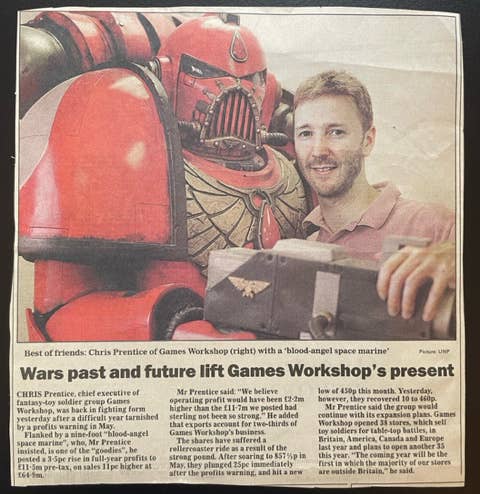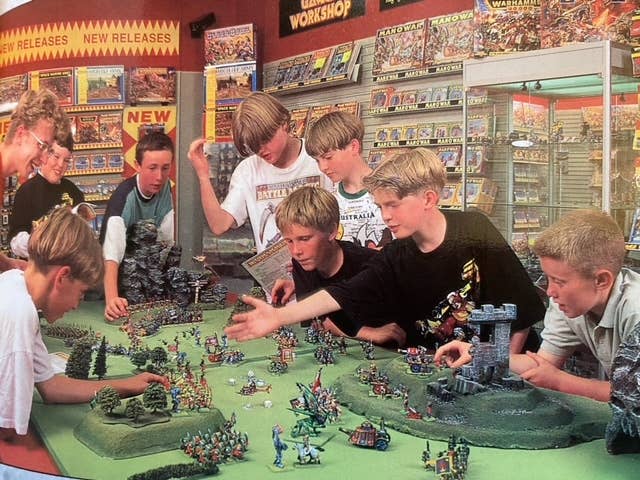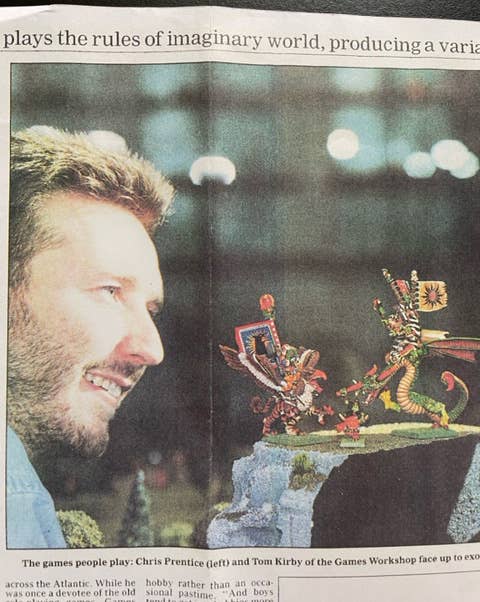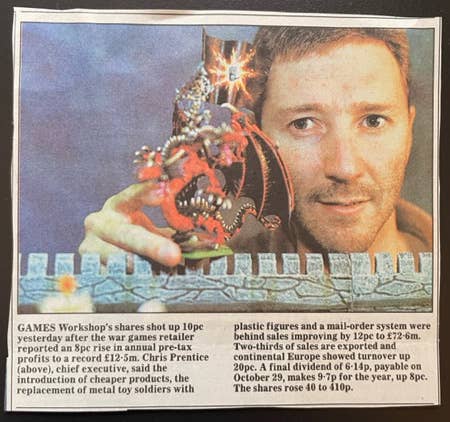“It was a wake-up call to remind us what we really did for a living.”
I couldn’t quite believe what I was hearing.
Pokemon, that very cheery cartoon of an IP, had nearly levelled the grim-dark house of Warhammer?

Time moved on and the story faded away.
But I never forgot it.
So when it surfaced in my mind earlier this year, I decided to do something about it.

I began by digging aroundin Games Workshop’s financial recordson the government’s website.
The trading card game, though, passed me by.
“By our own standards this has been a disappointing year,” he wrote.

(The Hobby is how GW execs refer to the miniatures business.)
“The Hobby is in rude health, and is continuing to spread profitability around the world.”
Why would Kirby feel the need to say something like that unless Games Workshop was under threat?

I read on - and made my biggest discovery yet.
Last year we saw a sharp decline in sales to this age group."
That must be it.

What else could he mean but Pokemon?
It was my best indication yet that somethinghadhappened at Games Workshop because of it.
All I needed now was someone to say “Pokemon” on the record.

But I read and read and I couldn’t find any explicit mention of it.
Chris Prentice’s “toy fads” was the best I had.
None of this suggested to me a company on its knees.
And to my surprise, some people did.
This was not on.
It’s not what I wanted to hear.
What had pushed him to make that comment?
He doesn’t have much of a LinkedIn presence, nor does he have much of an online presence.
He’s not someone, clearly, who puts themselves forward and welcomes being found.
Neat and trim, everything in order.
And I wonder whether he’ll remember any of it at all.
“I remember it very well,” he says.
Would you believe that I caught him mid-memoir writing when I asked to talk to him?
It’s a hell of a coincidence.
So why hadn’t I found it?
I combed back over the online records to check, but I still couldn’t see it there.
Because it wasn’t and isn’t.
For some reason, that one document has disappeared.
[Update:It hasn’t disappeared.
Filings like this live in a different place.
Thanks, commenter mini-mana-munu!]
And all because of Pokemon.
“This is my take on why it had an impact,” Prentice says.
And they just stopped coming to our stores."
Prentice believes it was a problem of Games Workshop’s own making.
Theoretically, it could have been anything.
Pokemon was a very isolated problem.
“It wasn’t anything like life-threatening,” Prentice says.
It was, however, uncomfortable.
Still, though, Prentice faced division from within.
There remained those among the Games Workshop higher-ups who believed a younger audience really was the way to go.
Rather than the more complicated building models, painting…
The more sophisticated hobby.
And that was a tension that was in the business certainly the whole time I was there."
Within six months the company was apparently back in double-digit growth.
Were it not for Pokemon, who knows where Games Workshop would be today?
he tells me and smiles.
He remembers his time at Games Workshop fondly.
It’s not clear if he’s a fan of Pokemon.